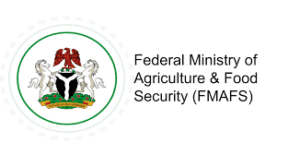
New Alliance for Special Agro-Industrial Processing Zones commits $3bn investment to boost African agriculture and food production
Founding members of a new private-sector focused Alliance for Special Agro-Industrial Processing Zones (SAPZ) have announced $3 billion in new investment to transform Africa’s underdeveloped rural areas into agro-industrial corridors of prosperity.
The Alliance, comprising development financial institutions, the private sector and development-oriented technical partners, will also help streamline the development and delivery of SAPZ projects.
The new commitments consist of $1.1 billion by the African Development Bank Group, $1 billion by Afreximbank, $300 million by the Islamic Development Bank Group (IsDB) and $600 million from Arise Integrated Industrial Platforms (Arise IIP) and its partners.
President of the African Development Bank Group, Dr. Akinwumi A. Adesina said, “The Alliance will raise funds through various investment windows for project preparation, project development and construction, and financing for tenant companies.
“By doing so, the Alliance will bridge the critical financing gap, complement existing initiatives, and mobilise resources towards our common goal of enhancing agricultural value addition in Africa,” Adesina added.
The Alliance was launched at the 2023 Africa Investment Forum Market Days¯#the continent’s premier investment marketplace¯#in Marrakech, Morocco on Wednesday. During the launch session, founding members discussed how the SAPZ model could impact Africa’s agro-industrialisation process.
“The beauty of this Alliance is that it brings together a lot of different, diverse players¯#this is just a start and others will join us,” said Dr. Beth Dunford, African Development Bank Vice President for Agriculture, Human and Social Development.
Special Agro-Industrial Processing Zones stimulate structural transformation in agriculture by connecting rural and urban development through the zone’s ecosystem. These zones integrate smallholder farmers into value chains through logistics and infrastructure, linking them to agro-industrial processors and consumer markets.
Prof. Benedict Oramah, President and Chairman of the Board of Directors of Afreximbank, welcomed the emergence of the Alliance and suggested that, to attract the private sector, the creation of continental regulatory bodies that countries could respect should be considered.
“Projects of this nature are very visible,” he explained.
According to the Alliance members, meeting this financing goal will deliver an additional 15 to 20 SAPZ projects in various countries across the continent and improve administrative, policy and investment incentives.
“Financing alone has never been enough to develop,” said Engr. Hani Sonbol, CEO of the International Islamic Trade Finance Corporation and acting CEO of the Islamic Corporation for the Development of the Private Sector, representing IsDB President Dr. Muhammad Al Jasser.
“Strengthening food sovereignty in Africa will require us to think differently in terms of investment. We look for self-sufficiency, climate change and adaptation, and how to attract private sector involvement,” he said.
Arise IIP CEO Gagan Gupta underlined the need for infrastructure around the zones that reflects the need of these communities, including housing, transportation, health and extension services.
“These zones rely on the governments for policy frameworks, supporting infrastructure, and training and vocational centres,” he said.
The United Nations Industrial Development Organization (UNIDO) brings on its part to the Alliance a wealth of technical assistance knowledge, practical experience, tools and methodologies.
“We have a lot of experience in developing, planning and implementing industrial parks and special economic zones,” said Gunther Beger, UNIDO Managing Director of the Directorate for Sustainable Development Goals, Innovation and Economic Transformation.
“The Alliance presents a completely new approach to transform Africa’s agro-food system. This is a much-needed partnership of financial institutions, public and private sector players,” he added.
Across the continent, the African Development Bank has already committed $853 million to develop more than two dozen Special Agro-Industrial Processing Zones in 11 countries. This investment has attracted $661 million in cofinancing from Bank partners.
Professor Oyebanji Oyelaran-Oyeyinka, Senior Special Advisor to Dr. Adesina, concluded: “SAPZ is a tool designed to achieve the twin objectives of structural transformation and rural development through agro-industrialisation.”
Prior to the panel discussion, Mr. Ryad Mezzour, Minister of Industry and Trade, Kingdom of Morocco, called on large private sector companies to become tenants in SAPZ. “You need a company that can bring the others – that integrates this area.”
Rwanda’s Minister of State for Treasury, Richard Tusabe, said: “Special Agro-Industrial Processing Zones will give us a chance to mass produce the food we need to feed our population. We need to feed our people¯#there is no shortcut.”



